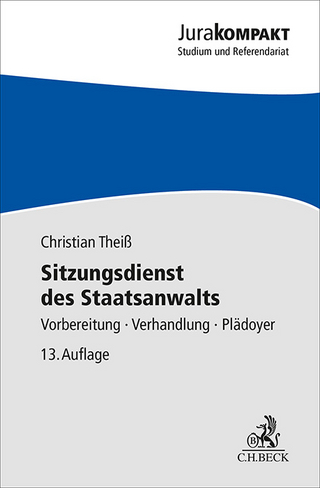
Comparing the Democratic Governance of Police Intelligence
Edward Elgar Publishing Ltd (Verlag)
978-1-78536-102-9 (ISBN)
The book's expert contributors provide a comparative look at police intelligence by exploring how emerging collaborative ventures have reshaped the way police define and prioritize public safety concerns. The book compares local security partnerships in both centralized and decentralized systems, presenting an unparalleled discussion of police intelligence not only in the English-speaking world, but also in countries like Germany and France, whose adoption of this collaborative paradigm has seldom been studied. Ultimately, this book provides a timely debate about the effectiveness of intelligence gathering tactics and the legitimacy of police tactics and related procedural justice concerns.
Because this book situates itself at the intersection of several disciplines, it will find an audience in multiple fields. Its diverse readership includes scholars and students of policing and security studies in law schools, criminal justice programs and political science and sociology departments. Other significant audiences will include professionals and researchers in comparative law, comparative criminal procedure and the study of law and society.
Contributors include: H. Aden, A. Barker, A. Crawford, J. de Maillard, T. Delpeuch, R. Epstein, J.A. Fagan, J. Gauthier, F. Lemieux, P. Manning, T.T. Meares, C. Mouhanna, C. Perras, J.E. Ross, S.J. Schulhofer, W.G. Skogan, N. Tilley, T. Tyle
Edited by Thierry Delpeuch, Research Fellow, PACTE (Politiques publiques, Action politique, Territoires) at the Centre National de la Recherche Scientifique (CNRS), Sciences Politiques Grenoble and the Université de Grenoble Alpes in Grenoble, France and Jacqueline E. Ross, Professor of Law, University of Illinois, College of Law, US
Contents:
I. INTRODUCTION
1. Introduction: The Collaborative Analysis of Intelligence
Thierry Delpeuch and Jacqueline E. Ross
PART II NETWORKS OPEN TO PARTICIPANTS OUTSIDE OF LAW ENFORCEMENT: THE INFLUENCE OF LOCAL SECURITY PARTNERSHIPS ON INTELLIGENCE ANALYSIS
2. Beat Meetings, Responsiveness to the Community, and Police Effectiveness in Chicago
Wesley G. Skogan
3. The Joint Production of Intelligence in Local Security Partnerships: French Initiatives in Local Risk Management
Thierry Delpeuch, Renaud Epstein and Jacqueline Ross
4. Information as a Form of Democratic Participation in Policing: Some Critical Reflections on the Role and Use of Online Crime Maps in the United Kingdom
Anna Barker
5. The English and Welsh Experiment in Democratic Governance of Policing through Police and Crime Commissioners: a Misconceived Venture or a Good Idea, Badly Implemented?
Adam Crawford
6. Intelligence-led Policing and the Disruption of Organized Crime: Motifs, Methods and Morals
Nick Tilley
7. Democratic Policing: Case Working and Intelligence
Peter Manning
PART III POLICE TACTICS, LEGITIMACY, AND INTELLIGENCE
8. Street Stops and Police Legitimacy in New York
Jeffrey Fagan, Tom R. Tyler and Tracy T. Meares
9. Enhancing Effectiveness in Counterterrorism Policing
Stephen J. Schulhofer
10. Cultural Profiling? Police Prevention and Minorities in Berlin
Jérémie Gauthier
11. Governing the Police by Numbers: The French Experience
Jacques de Maillard and Christian Mouhanna
PART IV “CLOSED” PARTNERSHIPS OPEN ONLY TO LAW ENFORCEMENT PROFESSIONALS: INTERNATIONAL SECURITY NETWORKS
12. Within Transnational Policing Systems: integration and adaptation mechanisms used by foreign liaison officers deployed in Washington DC
Frederic Lemieux and Chantal Perras
13. The Role of Trust in the Exchange of Police Information in the European Multilevel System
Hartmut Aden
PART V CONCLUSION
14. A Pluralist Perspective on Intelligence Regimes
Thierry Delpeuch and Jacqueline E. Ross
Index
| Erscheinungsdatum | 07.09.2016 |
|---|---|
| Verlagsort | Cheltenham |
| Sprache | englisch |
| Maße | 156 x 234 mm |
| Themenwelt | Recht / Steuern ► Allgemeines / Lexika |
| Recht / Steuern ► EU / Internationales Recht | |
| Recht / Steuern ► Strafrecht ► Strafverfahrensrecht | |
| ISBN-10 | 1-78536-102-3 / 1785361023 |
| ISBN-13 | 978-1-78536-102-9 / 9781785361029 |
| Zustand | Neuware |
| Haben Sie eine Frage zum Produkt? |
aus dem Bereich


